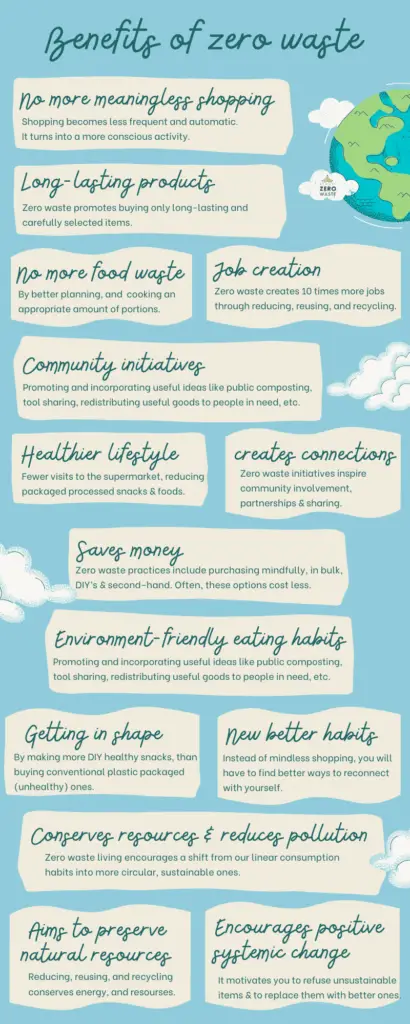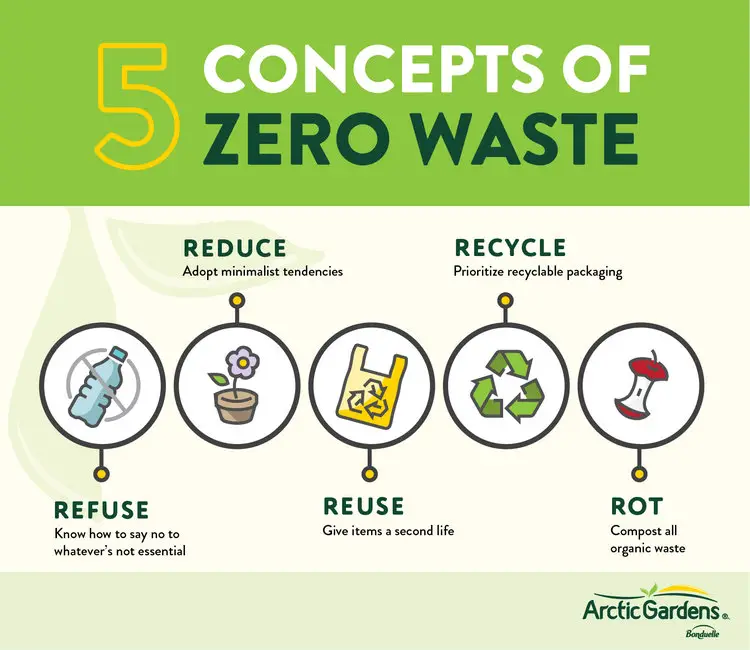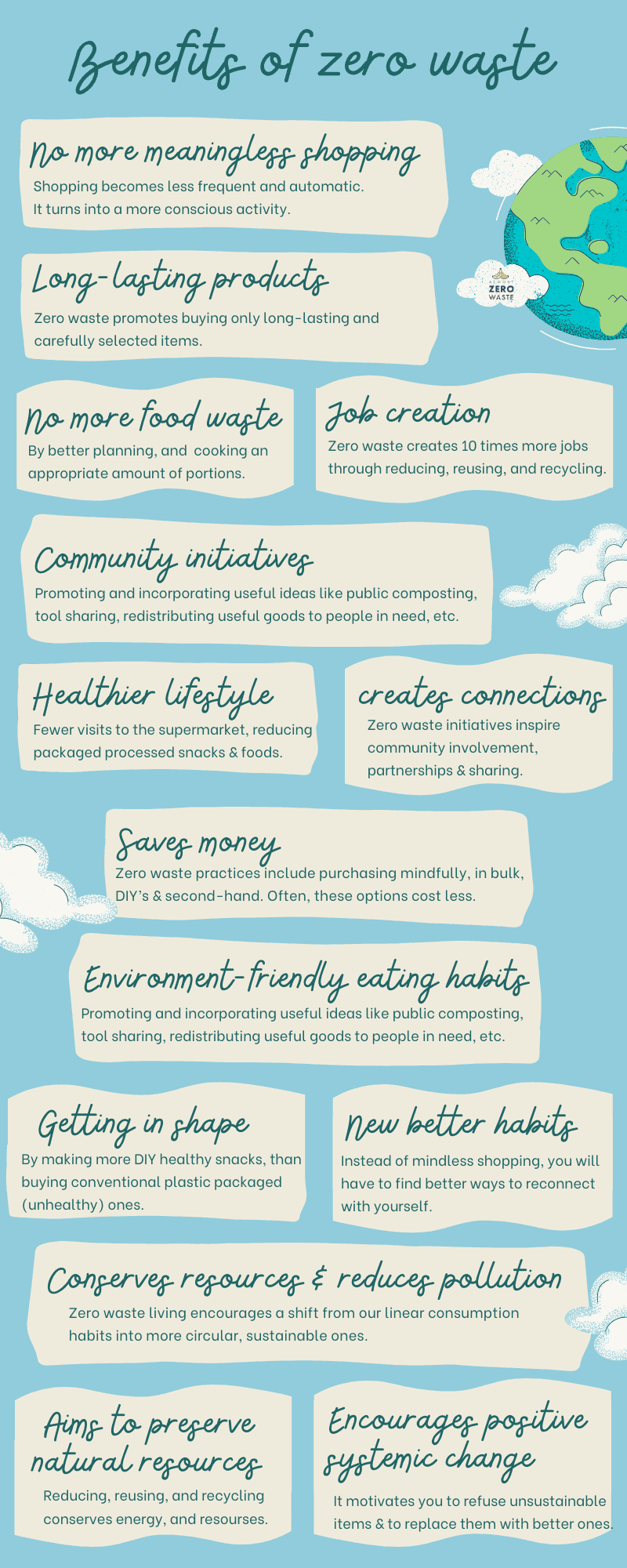Living a zero-waste lifestyle not only helps to protect the environment but also offers a surprising array of financial benefits. By consciously reducing waste and adopting sustainable practices, you can save money in various aspects of your life. From cutting down on excessive packaging to repurposing items instead of buying new ones, each step towards zero waste can help you save some green while living a more eco-friendly and fulfilling life. In this article, we will explore the financial advantages of embracing a zero-waste lifestyle and discover how simple changes can lead to significant long-term savings.
Heading 1
Subheading 1.1
Living a zero-waste lifestyle might seem like a daunting task, but it can actually have numerous financial benefits. By adopting sustainable practices and reducing waste, you can save money in various areas of your life. From cutting down on household expenses to minimizing food waste, zero-waste living can significantly impact your savings.
Subheading 1.2
One of the primary financial benefits of zero-waste living is the reduction in household expenses. By becoming more conscious of your consumption habits, you can drastically cut down on the amount of products you need to purchase. For instance, by utilizing reusable items such as cloth napkins, reusable water bottles, and shopping bags, you can eliminate the need to buy disposable alternatives. This not only reduces waste but also saves you money in the long run.
Subheading 1.3
Another area where zero-waste living can have a positive financial impact is in the realm of food waste. Food waste is a significant problem globally, and it also contributes to unnecessary expenses for individuals and households. By planning meals mindfully, buying only what you need, and properly storing leftover food, you can minimize food waste and stretch your dollars further. Additionally, composting leftover food scraps can help you create nutrient-rich compost for your garden, eliminating the need to purchase expensive fertilizers.

Heading 2
Subheading 2.1
Zero-waste living can also lead to financial benefits through energy and utility savings. By adopting energy-efficient practices and reducing energy consumption, you can lower your utility bills and save money in the long term. For example, turning off lights when not in use, using natural light during the day, and switching to energy-efficient appliances can all contribute to lower electricity bills.
Subheading 2.2
Water is another valuable resource where zero-waste practices can result in savings. By being mindful of your water usage and employing water-saving techniques, such as installing low-flow showerheads and faucets, fixing leaks promptly, and using rainwater for gardening purposes, you can reduce your water bills significantly. Conserving water not only benefits the environment but also helps you keep more money in your pocket.
Subheading 2.3
Transportation is an area where zero-waste living can have a financial impact, particularly if you choose to embrace alternative modes of transportation. By opting for walking, biking, or using public transport instead of relying solely on driving, you can decrease your fuel expenses and reduce your carbon footprint. Additionally, carpooling or sharing rides with others can further contribute to cost savings and promote a sense of community.

Heading 3
Subheading 3.1
One often overlooked area where zero-waste living can save you money is in the realm of personal care products. By making your own natural, zero-waste alternatives to commercial products, you can cut down on expenses and minimize packaging waste. For example, creating your own DIY skincare products using simple ingredients such as coconut oil, essential oils, and baking soda can be a cost-effective and eco-friendly alternative to purchasing expensive brand-name products.
Subheading 3.2
Adopting a zero-waste lifestyle can also lead to financial benefits when it comes to clothing and fashion. By choosing to buy second-hand clothing or participating in clothing swaps and sharing programs, you can save money while reducing textile waste. Additionally, caring for your clothes properly by repairing them when needed and washing them using eco-friendly practices can extend their lifespan, saving you from frequent replacement purchases.
Subheading 3.3
One of the lesser-known financial benefits of zero-waste living is the potential for earning extra income. By embracing a zero-waste lifestyle, you may find yourself creating unique crafts or products that others are interested in purchasing. For example, repurposing old materials into handmade items or offering zero-waste consulting services can become sources of income while promoting sustainable practices.
Heading 4
Subheading 4.1
Zero-waste living can also have a positive effect on your overall financial well-being by encouraging mindful spending habits. By adopting a more conscious approach to consumption, you are likely to make more thoughtful purchasing decisions and avoid wasteful impulse buys. This can result in saving money, as you prioritize quality over quantity and only purchase items that truly add value to your life.
Subheading 4.2
In addition to the direct financial benefits, zero-waste living can also lead to savings through improved health and well-being. By choosing fresh, whole foods over processed and packaged options, you can improve your nutritional intake while reducing the cost of pre-packaged convenience foods. Additionally, swapping out single-use plastic containers and products for healthier, reusable alternatives can also contribute to a healthier lifestyle and potentially reduce medical expenses in the long run.
Subheading 4.3
Lastly, embracing a zero-waste lifestyle can have long-term financial benefits for future generations. By reducing waste and conserving resources, we contribute to the preservation of the environment for future generations. This not only ensures the availability of resources but also avoids the potential financial burden of dealing with environmental degradation and the associated costs.
In conclusion, zero-waste living offers numerous financial benefits. From reducing household expenses and minimizing food waste to saving on energy and utility bills, adopting sustainable practices can positively impact your savings. By being mindful of your consumption habits, embracing alternative modes of transportation, creating your own zero-waste personal care products, and making conscious purchasing decisions, you can enjoy the financial advantages of a zero-waste lifestyle while contributing to a more sustainable future. So why not give it a try? Your wallet and the environment will thank you.



